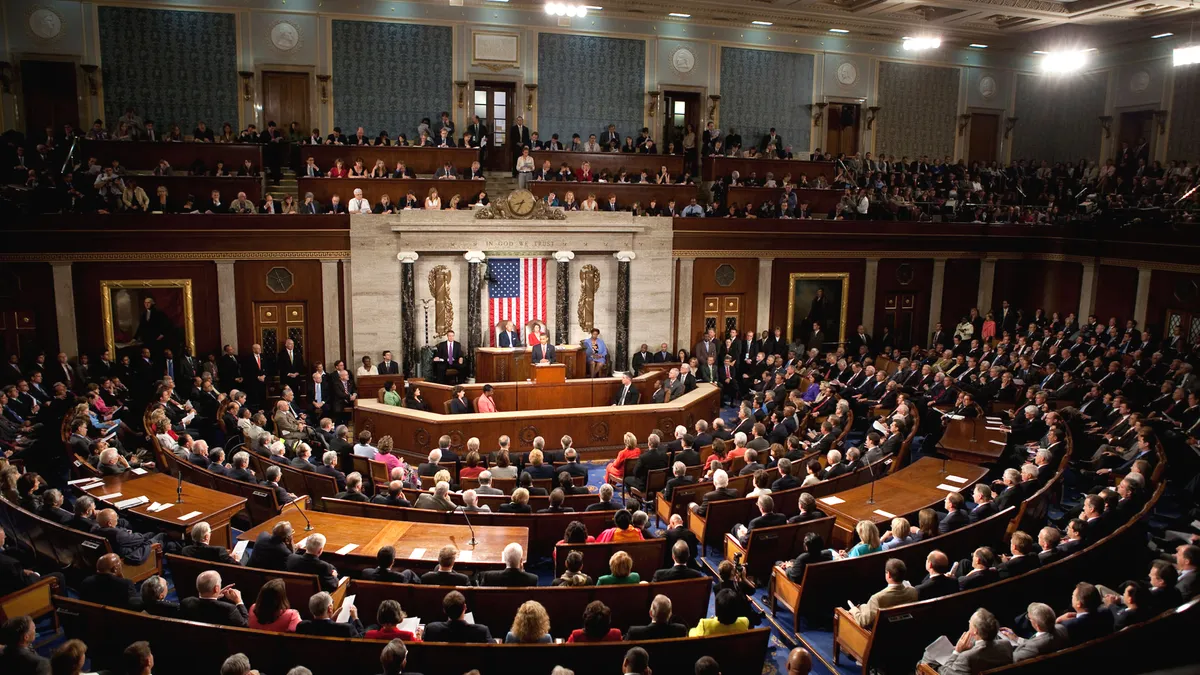Dive Brief:
-
Tax reform legislation passed in the Senate on Friday and is set to undergo reconciliation efforts in a conference committee. Both the Senate and House bills reduce the corporate tax rate from 35% to 20%. The Senate bill calls for a 14.5% one-time tax on cash currently held overseas to be classified as repatriated, and the House bill calls for a 14% tax, reports The Wall Street Journal. Both of these are significantly lower than the 35% rate companies face while moving overseas cash to the U.S. today.
-
The Senate bill includes an alternative minimum tax provision which seeks to limit the use of legal tax breaks to avoid paying more taxes; the AMT provision could force companies to lose the research and development credit — a popular tax break for tech companies and manufacturers, according to The Wall Street Journal. The House bill would repeal the corporate alternative minimum tax, according to Fox News.
- The tech sector has performed poorly this week in the stock market, thanks in part to worries of a 3% decline in S&P 500 earnings, which fell short compared to the 5% boost expected for other sectors, according to Goldman Sachs strategists, reports CNBC. The switch to a territorial tax system will increase taxation on earnings abroad, and if companies choose not to take advantage of the lowered repatriation tax rate they could be negatively impacted, analysts told CNBC. Nevertheless, Goldman Sachs expects a 12% increase in revenue for technology companies and profits from a "potential boost to buybacks from repatriated overseas earnings."
Dive Insight:
The cut in tax rates is meant to boost corporate earnings and incentivize companies with large overseas holdings to move overseas cash back to the U.S. Tech companies now dominate the list of the most valuable and largest companies in the world and top the list of companies holding cash overseas.
Apple, Microsoft, Cisco, Alphabet and Oracle are the top five holders with approximately $564.4 billion between them abroad; Apple is No. 1 with $246 billion overseas — or 94.1% of its total cash and marketable securities, according to Bloomberg.
The tech industry has clashed with the current administration several times on issues such as immigration and net neutrality. Yet the sector has also looked to leverage its clout upon politicians in the past, especially for tax reform. In June, many tech execs discussed tax reform with President Trump at a private meeting.
Tech companies have also invested heavily in lobbyists for tax reform to cut the corporate rate and lower taxation of overseas holdings. In the first half of 2017, tech companies hired 546 lobbyists — a sum greater than any of the six preceding years, reports Politico.
While no predictions are certain until the chambers agree upon a single tax reform bill, much lower corporate tax rates are definitely in the future for tech companies as Republicans capitalize on congressional majorities and a conservative president.












